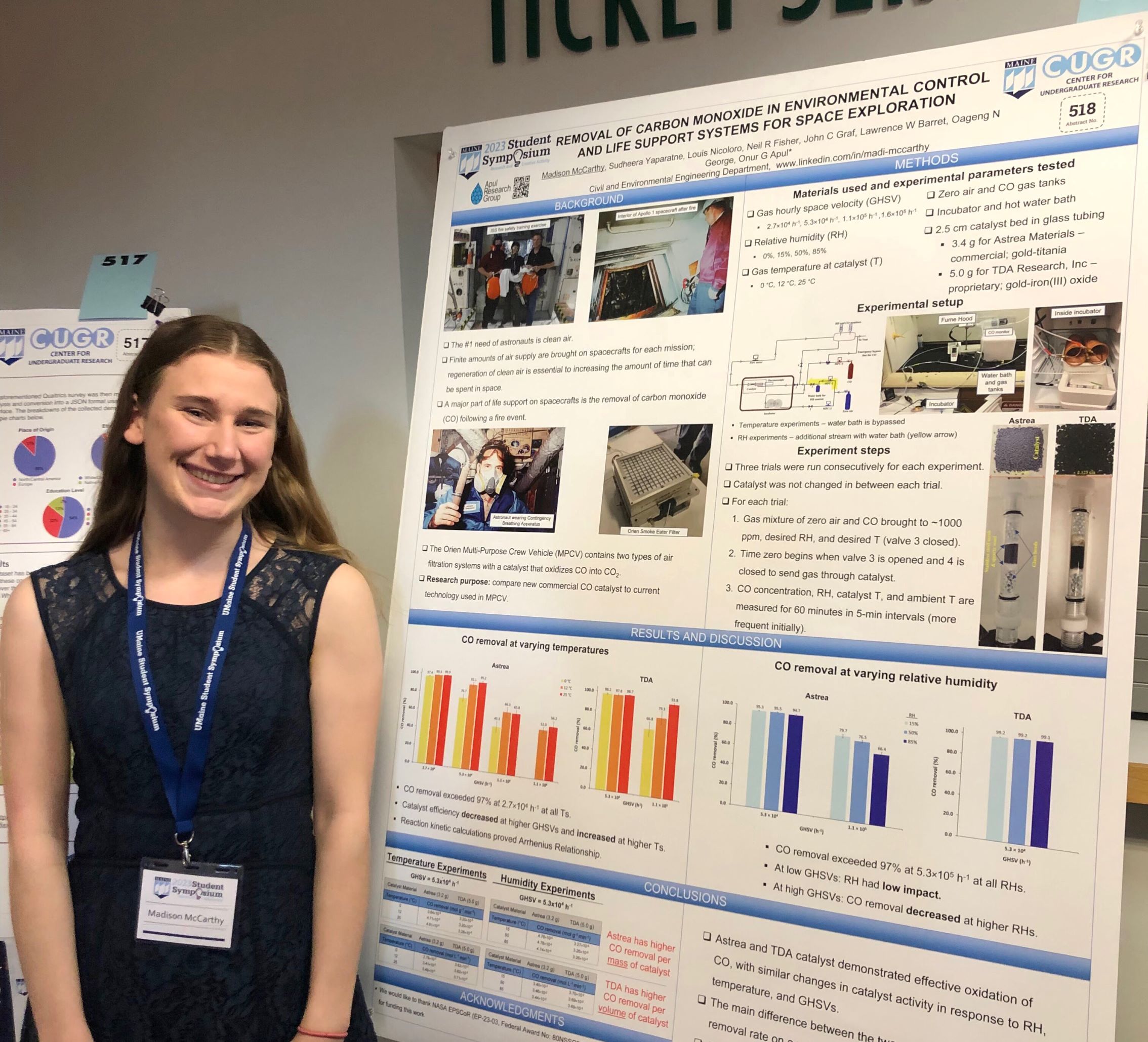
Student Spotlight: Madison McCarthy
Madison McCarthy arrived at UMaine knowing she wanted to get involved with research. “Whenever I heard on the news about the latest scientific breakthrough, I always thought to myself, ‘I want to be that scientist!” She didn’t want to jump into the first opportunity, however, and waited until the right one came along in the form of an email from Dr. Onur Apul. “He was looking for an undergraduate student to help characterize materials that would be used for air filtration on the International Space Station (ISS). I applied immediately because the subject fit all of my interests.”
McCarthy works with Dr. Onur Apul in his research lab, saying she felt very welcome by him and his students. “Dr. Apul has created a welcoming, inspiring group of individuals to work with. Although I was much younger than all his students when I first joined the group, they were eager to welcome me as a friend and researcher.” McCarthy appreciates the collaboration found in the lab, where everyone feels comfortable to share their ideas or ask for help on specific problems, and she appreciates their mentorship. “They have taught me to see my potential and I gained the confidence to start my own research project this year.”
That project is focused on “developing new methods for removing pollutants from wastewater using nanotechnology.” The objective of the research is to remove “a chemical called dimethylsilanediol (DMSD), found in silicon-based products like cosmetics, in the wastewater treatment system on the International Space Station. The goal is to develop a long-lasting, highly efficient technology that could replace NASA’s current method for removing DMSD, and potentially other pollutants.” McCarthy says that the drinking water supply is a limiting factor on the time and distance we are able to go in space. A more efficient method of removing pollutants could help expand NASA’s space exploration goals.
McCarthy had this to say for anyone thinking of getting involved in research: “The greatest thing you can do is to not underestimate yourself. I have spent so much time worrying whether I have the skills to do this or am smart enough to apply for that. Imposter syndrome can make research feel very daunting, but I have always found that I was more capable than I thought. Pushing through whatever worries you may have is worth it because your confidence will grow with each accomplishment!”
